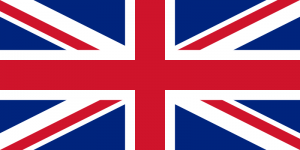In the United Kingdom, drugs and prostitution adds nearly $17 billion to the overall economy, but these transactions only account for less than one percent of the economy. Although these are deemed as illicit activities, the British government has decided to include them into its gross domestic product numbers.
The UK’s Office of National Statistics (ONS) announced (PDF) Thursday that sales of narcotics and prostitution will officially become a statistic when calculations of GDP numbers are performed by bureaucrats. The purpose for the move is to coalesce economic reporting across the European Union – for instance, the Netherlands has legalized prostitution and some drugs and counts them as official government figures.
 Austria, Finland, Germany, Greece and Hungary already add the revenues these areas produce into its GDP statistics. In addition, the United States Bureau of Economic Analysis (BEA) already measures prostitution in the state of Nevada and it will soon calculate the marijuana industry since it is legal in Colorado and Washington.
Austria, Finland, Germany, Greece and Hungary already add the revenues these areas produce into its GDP statistics. In addition, the United States Bureau of Economic Analysis (BEA) already measures prostitution in the state of Nevada and it will soon calculate the marijuana industry since it is legal in Colorado and Washington.
The London Telegraph notes that alcohol and tobacco smuggling are illegal in England but they are already included in the GDP, which adds approximately half a billion each year. Other criminal transactions are added too.
“As economies develop and evolve, so do the statistics we use to measure them,” said Joe Grice, the ONS’s chief economic adviser, in a statement. “These improvements are going on across the world and we are working with our partners in Europe and the wider world on the same agenda.”
Economic activity in the prostitution market was calculated using various estimates, such as the average price per visit, the number of clients for each prostitute per week and the cost of clothing and the room. Meanwhile, the drug market was calculated using number of users, street prices, imports and sales.
Authorities in the UK have no plans to legalize the aforementioned, but it will utilize a combination of police seizures and other data to estimate how much drugs and prostitution are adding to the economy, including production and sales of heroin, crack cocaine and ecstasy.
Previously, the government had attempted to use surveys to attain this information, but drug dealers were rather unlikely to answer such questions.
“In terms of the new concepts coming in, illegal activities [are] the biggest,” said Graeme Walker, head of national accounts at the ONS, in an interview with the British newspaper. “For the rest of GDP we do things like sending questionnaires to businesses, asking them how much they have earned. We don’t think it would be right to directly collect information on [illegal drugs and prostitution] and we have no plans to contact people involved in these activities. We think our data fits the purpose for giving people an idea of the size of illegal activity.”
CNN reported that Italy made a similar announcement this week when it confirmed it would start to measure sex work and narcotics in its GDP.



